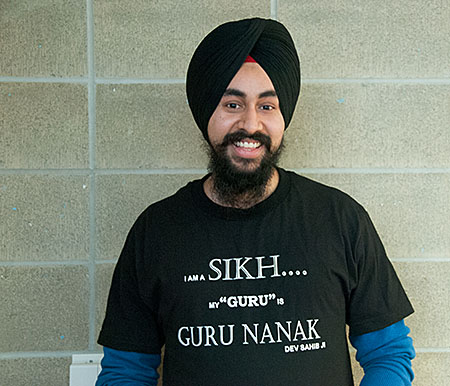BY MATTHEW EVANGELISTA
It’s been 16 years since 9/11; 16 years since the turban became a symbol of fear and distrust in North America. But Sikh students at Conestoga have been trying to bring a higher awareness of the turban, sometimes called a dastaar, which, in the Khalsa society, signifies many virtues including spirituality, honour, self-respect, courage, piety and responsibility.
Conestoga Sikh students hosted a turban tying event last month in the atrium to spread awareness. In the three years of holding the event they have tied over a thousand turbans, totaling more than 1,200 metres of cotton cloth.
This event was also held at Wilfrid Laurier University.
The turban has been an important part of the Sikh religion since the 1400s. It holds their long, uncut hair, a natural gift from God, protects it and helps keep it clean. Sikhs also do not shave. The turban is exchanged between friends as a sign of intense bonding.
“People treat us and see us with some hate sometimes. And we are saying it’s not bad, because they have their own faith, but we have a different identity that we carry with us and that we want to tell,” said Amanpreet Singh, a Conestoga Indian-born mobile solutions development student.
Sikhism is the world’s fifth largest faith, and one of the youngest. Almost 500,000 Canadians identify as Sikhs, making up around 1.4 per cent of the population. There are four Sikhs in Prime Minister Justin Trudeau’s cabinet, and over 27 million followers worldwide.
“In Sikhism there is a concept that wherever you are, in whichever part of the world, even if you’re lonely, it is the concept of upliftment and in high spirits. It means we are always in high spirits, and we’re always inspired to do more and more, even if awareness is not there,” said Divjot Singh, another Indian student at Conestoga College.

